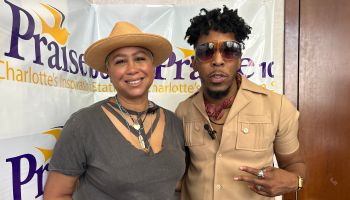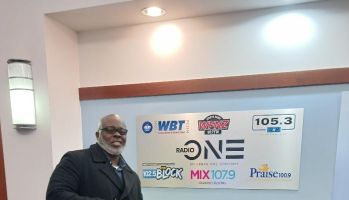
Source: SDI Productions / Getty
The 2019 census data shows fewer than 1 in 5 psychologists are people of color. Data also shows that fewer than 1 in 30 is Black. Yet, access to mental health services and the demand for culturally sensitive mental health professionals has exploded. Experts say the recent appointment of a Black Ordained Minister to lead the American Psychological Association (APA) presents a shift in the future of psychology. Rev. Thema Bryant, a tenured professor at Pepperdine University in Los Angeles, is an ordained elder in the African Methodist Episcopal Church. Next year, Bryant will lead an organization with a membership of 130,000 members and an organization that “sets guidelines for psychological treatment and practice, promotes research and provides expertise that shapes legislation and court decisions.” According to Bryant, her goal is to bring “psychology to the people.”
A Centers for Disease Control and Prevention report released in August 2020, said that “mental health conditions in June 2020 were disproportionately affecting specific populations, especially young adults, Hispanic persons, black persons, essential workers, unpaid caregivers for adults, and those receiving treatment for preexisting psychiatric conditions. In September 2020, a National Institute of Mental Health report showed that rates of suicide were rising among Black adolescents faster than any other racial or ethnic group. In March 2022, President Biden acknowledged that “our country is facing an unprecedented mental health crisis among people of all ages and that Black and Brown communities are disproportionately undertreated.” President Biden said that there must be a dramatic expansion of the “supply, diversity, and cultural competency of our mental health and substance use disorder workforce – from psychiatrists to psychologists, peers to paraprofessionals.”
Miguel Gallardo works as a psychologist at Pepperdine University. He says that Bryant has a way of connecting with Black, Indigenous People of Color communities (BIPOC). Gallardo acknowledges that the BIPOC communities are relying on a system that wasn’t built for them. Some of Rev. Bryant’s plans include hosting a conference in Washington that focuses on practical ways to cope with trauma, which will include laypeople, instead of just licensed psychologists to speak and participate. Bryant also wants to craft codes on “decolonizing psychology,” introduce mental health professionals to how to use song, dance and other forms of culture in their treatment and to produce a documentary highlighting psychologists of color and what they’re doing to expand access to care.
Not all APA members are in agreement with the focus on equity however. Last year, APA released a statement apologizing for its role in “promoting, perpetuating and failing to challenge” racism. Some members have shared that they feel the organization’s statement is undermining their ability to focus on other functions. Melba Vasquez, who is Latina and who became the first woman of color to become president in 2011, said that in recent years, some members of the organization have also expressed anxiety about psychologists of color dominating discussions about the future.
Rev. Bryant is not the first Black woman to lead the APA. For the past five years, three black women have led the predominantly white organization. Frank C. Worrell, a Black man, is the current president.

















